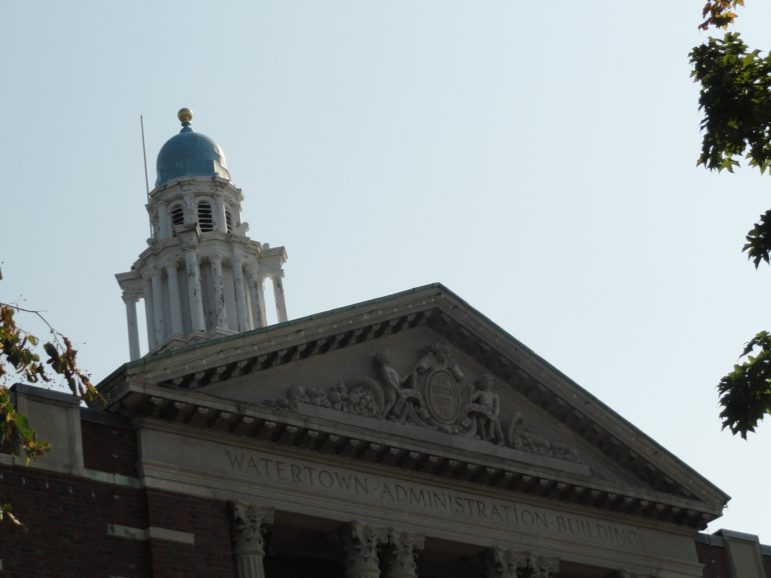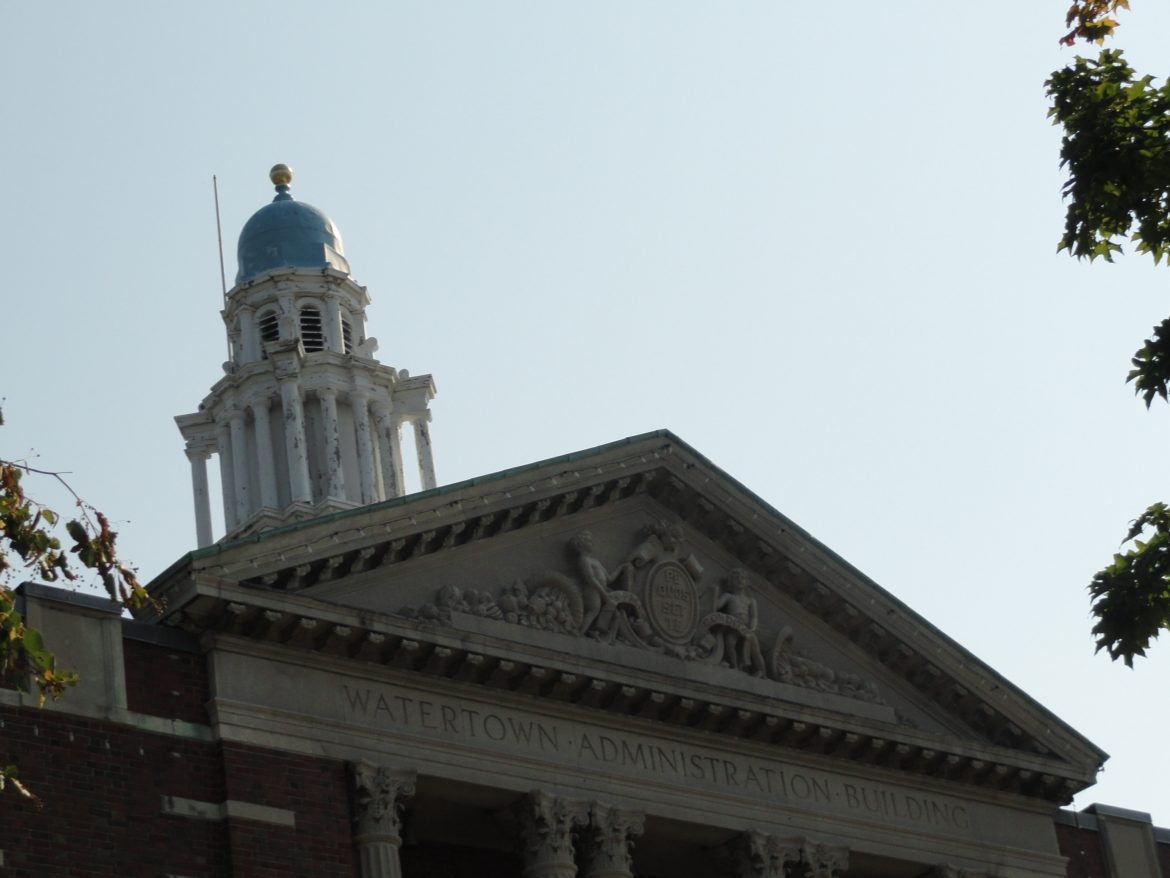
The impact of the COVID-19 pandemic will be felt in the Town of Watertown’s Fiscal Year 2022 budget (which starts July 1, 2021) but a recent real estate deal will help relieve some of the pain.
This year’s budget is the 29th that Town Manager Michael Driscoll has led in Watertown, but he is dealing with a new challenge when making the FY 2022 budget. As part of Tuesday’s budget presentation to the Town Council, Driscoll had a list of budget issues for FY 2021 and FY 2022.
“There are 61 bullets on this page. Respectfully, moved up to number one is the COVID-19 pandemic and related issues,” Driscoll said. “The key word is uncertainty — uncertainty for the rest of Fiscal Year 2021 and uncertainty with the development of the Fiscal Year 2022 budget.”
The FY 2022 budget is projected to be $159.6 million, which would result in a surplus of $261,880 with the projected Town expenses. The budget includes a 2.5 percent ($1.46 million) increase for municipal departments — including police and fire — and a 3.5 percent increase ($1.88 million) for the education budget. The waste disposal cost is expected to rise 5 percent ($169,413).
COVID-19 Impact
The current budget year, FY2021, was impacted by the Coronavirus with a cut in State Aid to the Town as well as lower local revenues. Exactly how much State Aid will be cut from next year’s budget remains unknown, Driscoll said.
When the pandemic hit, Town officials cut Watertown’s projected State funding by $2.6 million and the local revenues by $1.3 million ($3.9 million total). The cut in State funds turned out to be about $1.1 million. How much will be coming from Beacon Hill this year remains a big question, Driscoll said.
“On the Federal level we are in no-man’s land, and quite frankly the Commonwealth can’t develop a budget without know what’s coming from the Federal government,” Driscoll said. “We don’t have Cherry Sheets (showing the state aid Watertown will receive). We need significant help (in funding), which will trickle down from State government from the Federal government. We are not sure what’s coming and when it’s coming.”
When creating the FY 2022 Preliminary Budget, Driscoll used the amount that the Town got in FY 2020 — $10.56 million — as the projected amount of State Aid. That would be $1.39 million less that FY 2021.
Local revenues, such as those from local meals, hotel and motor vehicle excise taxes, also took a hit during the pandemic. From FY 2020 to FY 2021, these local revenues dropped about $700,000. Driscoll is projecting that some of those revenues recover in FY 2022, but not completely. Combined the three areas are projected to be $362,500 higher in FY 2022.
New Growth
Watertown will be getting a boost in New Growth, the additional real estate taxes. Normally big jumps in New Growth comes from new developments, but in FY 2022 budget it is the result of the sale of a major property in town, and a switch in tax status.
“The New Growth in FY22 of $6 million is related to the purchase by Spears State Capital of the Tufts Health Plan Building,” Driscoll said.
Tufts Health Plan was exempt from property tax as a non-profit, but did make a payment in lieu of taxes (PILOT) of $939,000 on the property at 705 Mt. Auburn St. and 64 Grove St. The property will return to the tax rolls and add about $2.7 million to New Growth. In June, Driscoll said the projected New Growth for FY22 was $3.3 million. The Town, however, will not get the PILOT payment from Tufts after the sale.
Budget Process
The presentation of the Preliminary Budget is the first step in the Town budget process, which typically ends in the spring with the approval of the budget. The Town Council will discuss its budget priorities in November, the Capital Improvement Program (CIP) will be submitted in January and adopted in March. The final budget is usually presented in April and approved by the Council in June.
See the documents from the Fiscal Year 2022 Preliminary Budget Overview by clicking here.

How can you predict how much money the town will get from property tax when the building is not even sold. Plus there are plenty of empty apartment in the new buildings that recently available. Also there are multiple apartment available in homes in 2 and 3 family homes. I have a three family with an empty apartment since July. Meaning I have less money for taxes, water, insurance, and the maintenance of my building and property. Plus you just raised the water rate 8.5 %. I am a senior citizen and if I can not rent my apartment I am going to have a problem keeping this house going.
Good questions. As I understand it, the rate for thw Tufts Building is based on how much similar buildings are assessed. As for empty apartments, I don’t think that would impact an assessment over a year or two.